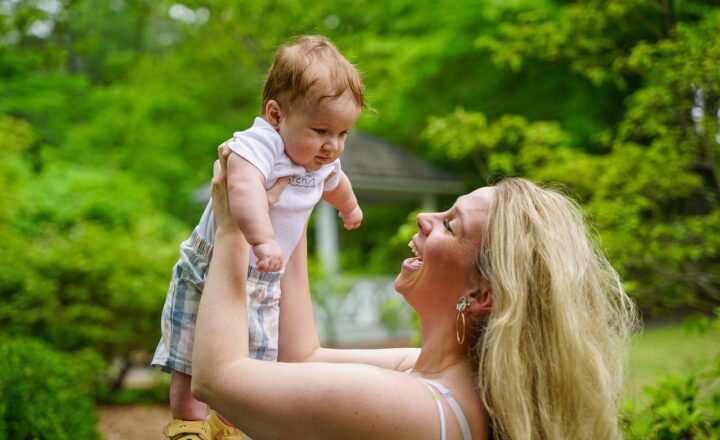
Outdoor play is not just an enjoyable pastime for children; it is an essential component of their overall development. In today’s increasingly digital world, where screens dominate much of children’s leisure time, the importance of outdoor play cannot be overstated. It plays a crucial role in fostering physical, social, emotional, and cognitive development, providing children with experiences that shape their personality and resilience.
1. Physical Development through Outdoor Play
Physical activity is fundamental for healthy growth and development, and outdoor play is an excellent way to encourage it. Here are ways outdoor play contributes to physical development:
- Gross Motor Skills: Activities such as running, jumping, climbing, and throwing help develop gross motor skills essential for everyday activities. Children learn to coordinate and control their bodies in a space free from the constraints of indoor settings.
- Strength and Endurance: Engaging in outdoor games requires physical exertion that builds muscle strength and endurance. Children who play outside regularly are likely to develop greater stamina compared to those who spend more time indoors.
- Balance and Coordination: Navigating uneven terrains, climbing trees, or riding bikes outside improves balance and coordination, which are vital skills for sports and other physical activities as they age.
Outdoor play sets the stage for a lifetime of healthy movement habits, reducing the risk of childhood obesity and associated health problems.
2. Social Interaction and Teamwork
Outdoor play provides a unique environment for children to engage in social interactions. Here’s how it fosters social development:
- Cooperation and Teamwork: Many outdoor activities encourage children to work together towards common goals. Whether it’s a game of soccer, building a fort, or creating a scavenger hunt, teamwork is essential and teaches children the importance of collaboration and shared responsibility.
- Conflict Resolution: Outdoor play can lead to disagreements or conflicts, providing children with opportunities to negotiate, compromise, and resolve issues. Learning to handle disputes peacefully is a key aspect of social development and emotional intelligence.
- Building Friendships: Children often meet new friends during outdoor play. These interactions help develop essential social skills, such as communication, empathy, and understanding others’ perspectives, which are crucial for forming healthy relationships later in life.
Creating a foundation for social skills during play can have lasting effects on children’s ability to interact with peers and adults throughout their lives.
3. Emotional Development and Confidence Building
Children’s emotional well-being is significantly enhanced through outdoor play. Key aspects include:
- Self-Esteem and Confidence: Overcoming physical challenges, such as climbing a tree or mastering a new sport, boosts children’s self-esteem. They learn that their efforts can lead to success, fostering a sense of achievement and confidence in their abilities.
- Emotional Regulation: Outdoor play helps children learn to manage their emotions. The unstructured nature of outdoor play allows children to express their feelings freely, from the joy of play to the frustrations of not succeeding in a game, teaching them emotional resilience.
- Stress Relief: Physical activity is a well-known stress reliever. Playing outdoors allows children to release pent-up energy and stress, leading to improved focus and mood. Nature’s calming effects can further enhance this emotional balance.
Building emotional intelligence through outdoor play prepares children for the ups and downs of life, equipping them with strategies to cope with challenges positively.
4. Cognitive Development: Creativity and Problem Solving
Outdoor play encourages cognitive skills that are essential for learning and development. Some cognitive benefits include:
- Enhancing Creativity: Outdoor settings stimulate children’s imaginations. They can turn a pile of leaves into a fort or use a stick as a sword, promoting creativity and inventiveness. Unstructured play encourages kids to think outside the box and express their creativity freely.
- Critical Thinking and Problem-Solving Skills: Whether they’re figuring out how to get down from a high spot safely or solving conflicts that arise during play, children are constantly challenged to think critically and devise solutions. This fosters essential problem-solving skills that will benefit them throughout their education and beyond.
- Connecting with Nature: Learning to appreciate the environment promotes interest in science, geography, and biology. Understanding natural systems and experiencing biodiversity firsthand contributes to children’s cognitive development and fosters respect for the planet.
Outdoor play is a rich learning environment that encourages explorative behaviors, laying the groundwork for lifelong learning and curiosity.
5. Building Resilience and Independence
Outdoor play cultivates resilience and independence in children by providing them the chance to take sensible risks and learn through experiences:
- Risk-Taking Opportunities: Climbing trees, navigating obstacle courses, or exploring unfamiliar areas encourages children to assess risks and make decisions. These experiences help develop judgment skills that are crucial for safe decision-making in adulthood.
- Self-Discovery: Through outdoor play, children learn about their interests, preferences, and limits. This self-awareness fosters independence and confidence, as they discover what they enjoy and are capable of achieving.
- Encouraging Initiative: Outdoor play often requires children to initiate their activities, whether inventing games or organizing playdates. This independence teaches them to rely on themselves and their judgment, promoting a proactive attitude toward challenges in life.
Through outdoor play, children become resilient individuals who can adapt and thrive in an ever-changing world.
Conclusion
In conclusion, outdoor play is a vital aspect of child development that supports physical, social, emotional, and cognitive growth. Encouraging children to spend time outdoors not only helps them to develop essential life skills but also fosters a love and appreciation for nature. As parents and caregivers, it is crucial to prioritize outdoor play, ensuring children have ample opportunities to explore and grow in a safe and engaging environment. The benefits of outdoor play resonate through childhood and into adulthood, shaping well-rounded, resilient individuals ready to face the world. So, let’s allow our children to run, explore, and thrive in the great outdoors!







